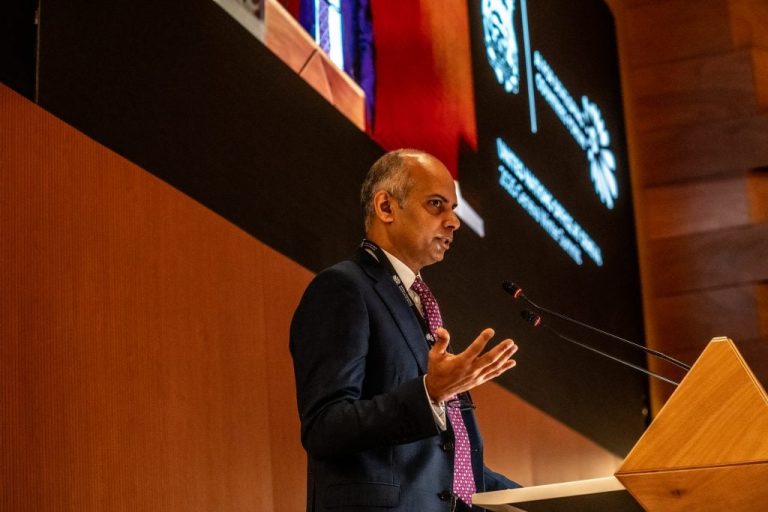Boosting Trust in AI: How Web3 Technology Enhances Confidence and Reliability
Web3 Tech Enhances Trust in AI
The potential of artificial intelligence (AI) is immense, promising to simplify our lives while opening up avenues for substantial profits. According to the United Nations, AI could evolve into a $4.8 trillion global market by 2033—similar to the size of the German economy. However, even today, AI is catalyzing transformations across a variety of sectors including financial services, manufacturing, healthcare, marketing, agriculture, and e-commerce. From autonomous ‘agents’ managing investment portfolios to AI systems detecting diseases at earlier stages, AI is reshaping how we operate daily.
Yet, skepticism surrounding AI continues to grow, fueled by cultural references like “Terminator 2” that have made us cautious. A critical question emerges: how can we foster trust as AI becomes increasingly embedded in our lives? The risks are significant; a recent report by Camunda underscores that 84% of organizations attribute regulatory compliance challenges to a lack of transparency in AI applications. Without visibility into algorithms—especially if they conceal underlying biases—users are left in uncertainty.
Transparency: Unveiling the AI Black Box
Despite their advanced capabilities, AI algorithms tend to be opaque, leaving users uninformed about the decision-making processes. For instance, is your loan application denial due to your credit score, or is it influenced by undisclosed biases? Without transparency, AI can serve the interests of its creator while the user remains unaware, mistakenly believing it addresses their needs.
One prospective solution is to utilize blockchain technology, which could render algorithms verifiable and auditable for all. Startups like Space and Time (SxT), backed by Microsoft, are already exploring this avenue. SxT provides tamper-proof data feeds through a verifiable compute layer, ensuring that the data AI relies upon is accurate and free from manipulation.
The innovative Proof of SQL prover from SxT guarantees that queries are computed against unaltered data, expediting processes significantly more than traditional zkVMs and coprocessors. Essentially, SxT aims to establish trust in AI’s inputs without relying on a centralized authority.
Building Trust in AI
Trust is not an instantaneous achievement; it requires continuous effort. Much like a restaurant striving to maintain its Michelin star, AI systems need ongoing assessments for performance and safety, especially in critical areas like healthcare or autonomous driving. A malfunctioning AI prescribing incorrect medications or causing accidents is not just a minor issue—it could be disastrous.
This reflects the value of open-source models and on-chain verification through immutable ledgers, paired with privacy safeguards like Zero-Knowledge Proofs (ZKPs). Users must also have a clear understanding of what AI can and cannot accomplish in order to set realistic expectations. If people think AI is flawless, they may disproportionately trust flawed outputs.
Up until now, discussions about AI have largely focused on its potential risks. Going forward, we should aim to enhance public awareness of AI’s capabilities and limitations, empowering users rather than exploiting them.
Compliance and Accountability in AI
Similar to the cryptocurrency domain, compliance is frequently mentioned in AI discussions. AI must adhere to legal standards and regulations—so how should accountability be managed for an algorithm that lacks a face? A possible solution lies in the modular blockchain protocol Cartesi, which facilitates on-chain AI inference.
Cartesi’s virtual machine allows developers to run standard AI libraries, such as TensorFlow and PyTorch, within a decentralized environment, making it an ideal platform for on-chain AI development. This represents a synergy of blockchain transparency and AI computation.
Decentralization as a Trust Mechanism
The UN’s recent Technology and Innovation Report highlights that while AI holds promises for prosperity, it is crucial to address trust issues as it integrates deeper into societal frameworks. By leveraging blockchain and Web3 technologies, we can pave the way for increased transparency, accountability, and ultimately, trust in AI systems.
As advancements in artificial intelligence continue, there is growing concern that the risks associated with its development may exacerbate existing global inequalities. One potential solution to this issue is decentralization, which could enhance the scalability of AI while fostering greater trust in its functionalities.
Recent News in AI
- Reddit Sues Anthropic Over AI Data Scraping
- The Modern ROI Imperative: AI Deployment, Security, and Governance
- AI Enables Transition from Enablement to Strategic Leadership
- Tackling Hallucinations: MIT Spinout Teaches AI to Acknowledge Its Limitations
Stay updated with the latest in technology and gain access to premium content directly in your inbox.
Join our community and subscribe today!
The Role of Machine Learning in Enhancing Cloud-Native Container Security
As organizations increasingly turn to cloud-native solutions, the security of containerized applications becomes paramount. Machine learning (ML) plays a pivotal role in this security landscape by identifying vulnerabilities and threats in real time. By leveraging advanced algorithms and data analytics, ML can predict potential security breaches before they occur, providing a proactive defense mechanism.
Furthermore, ML systems continuously learn from ongoing activities within the cloud environment. This adaptive approach improves the overall security posture, allowing tools to respond to new threats dynamically. The integration of ML not only streamlines security operations but also enhances the effectiveness of security measures, making them more intelligent and responsive.
Innovative Machine Learning Uses Transforming Business Applications
In various sectors, innovative applications of machine learning are redefining business practices. From automating routine tasks to extracting valuable insights from vast datasets, ML is revolutionizing workflows. Companies can harness the power of ML to enhance customer interactions, optimize supply chains, and improve operational efficiencies, all while minimizing manual intervention.
This transformative technology equips businesses to make data-driven decisions, increasing agility and responsiveness in fast-paced markets. As a result, organizations adopting ML are better positioned to innovate and thrive in competitive landscapes.
AI and Bots Allegedly Used to Fraudulently Boost Music Streams
Recent reports have surfaced regarding the use of artificial intelligence and bots to artificially inflate music streaming numbers. This practice raises significant ethical and regulatory concerns, as it undermines the integrity of music charts and revenue distributions. The impact of such actions can be detrimental, not only to artists seeking fair representation but also to platforms that rely on accurate data.
As the music industry grapples with these challenges, the conversation around digital ethics and accountability intensifies. There is a pressing need for industry-wide regulations and protective measures to safeguard against these fraudulent activities.
The Benefits of Partnering with Outsourced Developers
Outsourcing development tasks to specialized firms can offer numerous advantages for tech companies. This collaboration allows organizations to access a broader talent pool, fostering innovation and enhancing the quality of deliverables. By partnering with external experts, companies can focus on their core competencies while leveraging the latest technologies and methodologies.
Moreover, outsourcing enables organizations to scale operations efficiently, adapting to changing project requirements without the burden of hiring full-time staff. This flexibility is crucial in an ever-evolving tech landscape, as companies strive to maintain a competitive edge.
Tackling AI Hallucinations
In a groundbreaking development, a spinoff from MIT is working on a solution to teach artificial intelligence systems to recognize when they lack knowledge. This innovative approach aims to reduce the instances of AI “hallucinations,” where the technology generates false or misleading information.
AI in Diabetes Management
IBM and Roche are collaborating to harness artificial intelligence for improved diabetes management. Their goal is to utilize AI algorithms that can accurately predict blood sugar levels, providing better support for those managing this chronic condition.
Concerns Over AI and Free Speech
DeepSeek’s recent AI model has sparked controversy, as many experts believe it represents a significant regression in terms of free speech protections. Critics argue that the model limits open discourse rather than fostering it, raising ethical concerns in the tech community.
Arab countries are diverse and vibrant, showcasing a rich tapestry of cultures, traditions, and histories. From the vast deserts of Saudi Arabia to the picturesque beaches of Seychelles, each region offers unique landscapes and experiences.
Africa is home to many nations, including Senegal and South Africa, which boast thriving arts and music scenes. Meanwhile, countries like Sierra Leone and Uganda exhibit stunning natural beauty, ranging from lush forests to expansive national parks.
In Europe, Serbia and Slovakia present fascinating histories, while Switzerland is renowned for its breathtaking Alps. The Scandinavian nations, including Sweden, offer a blend of modern design and stunning natural vistas.
Asian countries like Singapore and Vietnam contrast bustling urban life with serene rural areas. They highlight a cultural blend influenced by both history and innovation, creating a unique atmosphere for travelers and residents alike.
In Latin America, Trinidad and Tobago and Uruguay attract visitors with their vibrant festivals and rich culinary traditions. This diverse region is known for its hospitable people and warm climates.
Lastly, countries like Australia and New Zealand in the Pacific region offer incredible wildlife and spectacular landscapes, making them prime destinations for outdoor enthusiasts and nature lovers.
Understanding the diversity across these nations enriches the global tapestry, illustrating how geography, history, and culture shape societies in various ways.






